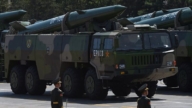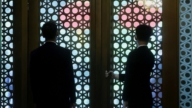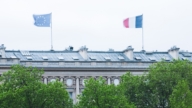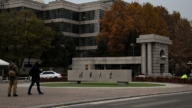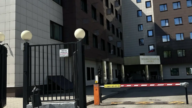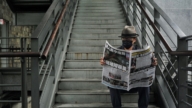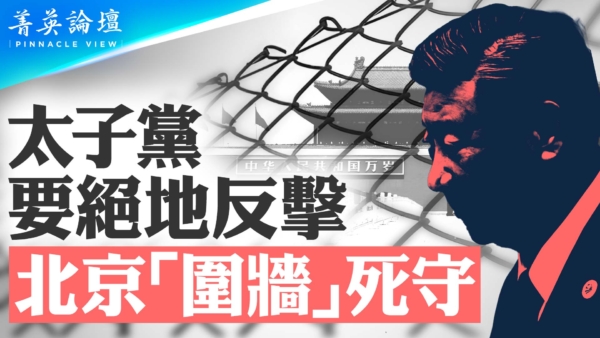【新唐人2014年06月28日訊】中共國家審計署發佈的2013年度審計報告顯示,發現了300多起重大違法違紀案件,包括政府公款被用於購買「法國葡萄酒園」,以及支付「拉斯維加斯豪賭行程」,而7家央企卻超提超發11億等。評論指出,「老虎、蒼蠅一起打」的反腐運動,只是利益集團重新分配的遊戲,民眾和官員從來就不相信中共的反腐是為了「廉潔」。
中共國家審計署向「中共人大常委會」提交的報告中,列舉了多個違規事例。例如遼寧省和大連市政府,向兩家企業提供2億6800萬人民幣補助款,支持併購海外科技型企業,但這筆款項,卻被用於購買法國的14個「葡萄酒莊園」。
審計署直接點明這兩家企業,分別為大連「海昌集團」和「銳陽(大連)投資管理有限公司」。《法國新聞社》報導說,近年來,中國投資者成了法國葡萄酒園的最大買家之一。「海昌集團」是目前法國波爾多地區葡萄酒莊的最大中國買家,擁有超過10塊地產,包括「聖羽拉菲酒莊」(Chateau Chenu-Lafitte)。
據中共喉舌媒體報導,去年,中國成了世界最大的葡萄酒消費市場,在過去5年之內,中國紅葡萄酒的消費量增長了136%。
美國紐約城市大學政治學教授夏明:「他們不是用這些錢去找技術、找市場,對中國的經濟長期發展有利,他們考慮的主要是自己的滿足,和逃避投資失敗的責任,同時有這些實業,他去遊山玩水,他的由頭就更多了。」
大陸獨立學者王思想:「他們多少年來就是這樣子,他們利用這種名義為中央政府洗出錢來而已,中央政府很多人對這個事睜一只眼閉一只眼,這個事一點都不奇怪,政府撥款都是在洗錢,他們在國內國外都是這麼幹。」
大陸《新華網》報導說,這次審計暴露出群體性腐敗問題嚴重等突出特點,「有令不行、有禁不止」的問題仍然突出,一些部門及所屬單位沒有嚴格落實中央八項規定精神,「三公」經費超標、違規蓋樓和辦公用房超標、動用財政資金髮「福利」等違反財經制度規定現象,仍是主要問題。
審計報告舉例說,新聞出版廣電總局所屬「廣電設計院」及下屬監理公司,報銷發放職工獎金、支付職工國內外休息療養費用,超過3034萬元﹔「社保基金會」違規發放實物津貼補貼超過152萬元﹔民航局所屬「空管局」以職工療養名義,安排178名在職員工旅遊,支出142萬元。
去年,「中國地質局」考察團改變在美國的行程,前往拉斯維加斯停留3天,回國後卻謊報當時在加拿大考察。另外,「海洋局」高層官員前往「南極長城站」考察,13天行程中卻有6天在法國和智利度過。
夏明:「中國基本上沒有更新的花樣,能夠讓他們去享受和去開發,所以出國就成了新的一種福利,同時也變成黨和政府對中層官員的一種回報,買得他們的忠誠,達到他們的利益共同體。」
中共官員受賄的方式更加隱蔽。「中國儲備棉管理總公司」將存儲空間出租賺取收入,卻把自己的儲備棉花留在外面腐爛。
實際上,公款依然是中共官員們吃喝拉撒買單的主要來源。「人力資源和社會保障部」辦公廳原副主任曹淑傑,花13萬元做美容,然後以「會議費、稿酬」等方式公款報銷。
王思想:「蛀蟲不會減少,一個老的蛀蟲死掉,迅速的有更多的蛀蟲冒出來,但老百姓喜歡看到官員倒霉,看到他們被另一方整下臺那種幸災樂禍。我希望通過反腐使他們內部發生分化,從而滋生一些內部的反對力量,這樣對推動中國進步是有作用的,至於反腐達到廉潔的目地,幾乎已經沒有人相信了。」
根據審計署的報告,「央行南京分行」少報了1億3200萬元的收入,而成都印鈔廠花費了660萬元用於公關、娛樂和購買禮物。另外一個在北方的印鈔廠,則花費500萬元購買汽車,用於官員旅遊。
採訪編輯/劉惠 後製/李勇
Audit: 268 million RMB Of Public Funds Used To Buy French Vineyards
2013’s Annual Audit Report released by the National Audit
Office of the Chinese Communist Party (CCP) listed more than 300 major violations.
Among them were French wine vineyards and gambling trips
to Las Vegas purchased with tax dollars as well as seven
central state-owned enterprises over-paying superannuation
and salaries by about 1.1 billion RMB.
Commentators believe that the ‘attacking tigers and flies’
anti-corruption campaign is only a game of re-allocating
interests among vested groups.
The public and officials have never trusted the CCP’s
anti-corruption as being aboveboard.
The National Audit Office submitted its annual report
to the CCP’s Standing Commission of the National People’s
Congress (NPC), citing several non-compliance instances.
For example, the Municipal Governments in Liaoning
and Dalian Provinces provided two companies with
a 268 million RMB subsidy for the acquisition
of foreign tech companies.
However, the funds were actually used to purchase
14 French wine estates.
The Audit Office listed the names of two Dalian companies –
Haichang Group and Rui Yang Investment Management Ltd.
Agence France Presse reported that in recent years, Chinese
investors have purchased many French vineyards.
Haichang Group is currently the largest Chinese wineries
buyer in the Bordeaux region of France.
The company has more than 10 properties
including Chateau Chenu-Lafitte.
According to reports by the CCP mouthpiece media,
last year, China became the world’s largest wine market.
During the past five years, China’s consumption of red wine
increased by 136 percent.
American Political Science Professor at the City University
of New York, Xia Ming: “They are not using the money
for developing technology and the market, which would
favor China’s long-term economic development.
On the contrary, they primarily consider their own
satisfaction, and evade liability for investment failures.
Such industry investments give them numerous excuses
for overseas sightseeing."
Mainland China independent scholar Wang Sixiang:
“They have been like this for many years.
They are money laundering on behalf of the Central
Government and many officials turn a blind eye to it.
This is not surprising because the Government funds
are used for money laundering.
They have done it this way at home and abroad."
China-based Xinhua Net reported that the audit detected
serious corruption problems and other prominent issues
including “orders not being executed
and prohibitions not being carried out."
Some departments and their subordinate units are not
strictly implementing the Central’s Eight Provisions.
There has been excessive spending of three key groups
of public funds.
The excessive development of buildings and office space
as well as issuing welfare using fiscal funds are violations.
These are still major problems.
The audit report gives examples.
The Design Institute of Broadcast Radio and its subordinate
supervision company are all managed by the Press
and Publication Administration of Radio.
They reimbursed staff bonuses and domestic recuperation
costs by more than 30.34 million yuan;
The National Social Security Fund illegally overpaid
subsidies by more than 1.52 million.
The Air Traffic Control Department affiliated to the Civil
Aviation Administration Bureau paid 1.42 million
in travel expenses for 178 staff members.
Last year, the China Geological Bureau delegation
re-arranged their itinerary while in the United States.
They stopped over in Las Vegas for three days, but after
their return it was falsely reported as a visit to Canada.
In addition, the Oceanic Bureau’s senior officials were
scheduled to visit Antarctic Great Wall Station for 13 days.
However, they spent six days in France and Chile.
Xia Ming: “China basically has no updated tricks for them
to enjoy.
Visiting overseas countries has become
a new kind of welfare.
Meanwhile overseas trips have also become a kickback
from the CCP to mid-level officials.
These trips are used for buying loyalty and maintaining
their community of interests."
Chinese officials taking bribes has become more subtle.
China National Cotton Reserves Corporation earned rental
storage space, but their reserved cotton was put outside,
where it rotted.
In fact, public money is still the main source of paying
for officials’ meals.
Former Deputy Director of the Human Resources and Social
Security Ministry, Cao Shujie, spent 130,000 RMB on beauty.
The cost was then reimbursed with public funds in the name
of “conference fees, royalties.”
Wang Sixiang: “Moths will be disappear.
Once an old moth dies, more worms quickly emerge.
However, ordinary people like to see officials be implicated,
resign, get attacked by another faction, and other bad luck.
I hope, with the anti-corruption movement,
internal differentiation occurs among them,
and thereby some internal opposition is able to breed,
so this will play a role in the progress of China.
Almost no one believes the anti-corruption project
operates aboveboard with transparency."
The Audit Office reported that the Nanjing Branch of China’s
Central Bank under-reported 132 million RMB revenue.
Chengdu Note Printing Plant spent 6.6 million RMB
on public relations, entertainment and gift buying.
Another Note Printing Plant in the northern China area
then spent five million RMB on car for officials’ travel.
Interview & Edit/liuhui Post-Production/liyong


